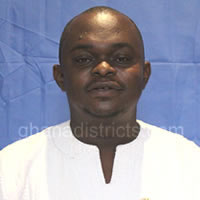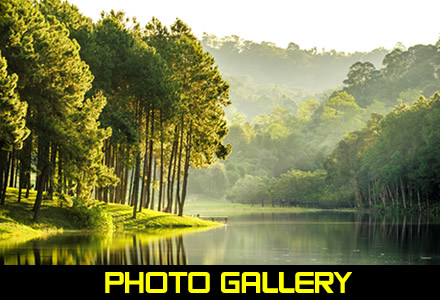Culture refers to the cumulative deposit of knowledge, experience, beliefs, values, attitudes, meanings, hierarchies, religion, notions of time, roles, spatial relations, concepts of the universe, and material objects and possessions acquired by a group of people in the course of generations through individual and group striving. The culture of the predominant group of people in the District that is the Bonos is identical to the broader Akan ethnic group in Ghana.
Ethnicity and Religion
The predominant ethnic group in the district are the Bonos who are the natives of the area representing 88.5 percent of the population. There are other minor tribes like the Ahyis from La Cote de Voire constituting 0.6 percent, Ashantis percent, Northerners (People from northern Ghana like the Frafra, Mamprusi, Gonja, Basare, etc.) 7.4 percent and others (Ewes, Ga-adangbe, Sefwi etc) 1.6 percent. This clearly depicts the heterogeneous nature of Ghanaian societies and hospitality whereby stranger are easily accepted to settle all over the country. It also creates a large pool of both skilled and unskilled labour which is a precondition for investment, industrialisation and economic growth and development.
In terms of Religious affiliation, 91 percent are Christians, 5.7 percent are Moslems, 1.2 percent Traditionalists and 2.1 percent representing others who are not affiliates of any of three religions. Despite the religious differences, there is peaceful co-existence and religious tolerance among the people in the district.
Marital Status
Marriage is a highly cherished institution in every Ghanaian society. The institution legitimizes a man and woman for co-habitation and procreation. Hence a child born outside marriage is normally scorned. From the survey conducted, 67.4 percent of the population were married, 20.9 percent single, 1.6 percent separated, 2.1 percent divorced, 7.6 percent widows/widowers and 0.4 percent were in consensual unions. It is very obvious from the statistics that effective parental control over children born out of marriages are high and parents will therefore have the ability to instill discipline in their children as well as cultural values to reduce deviant behaviours in the communities. Also, widows and widowers especially the vulnerable ones should be considered in decision making.
Traditional Setup or Hierarchies
At head of the Akan political set-up is the Chief who occupies his position through the royal line of succession. That is to say, he assumes his position because of his belonging to the royal family. The Mansenhene is the head of the traditional setup in the Dormaa East District.
Once enstooled, the chief exercises executive, legislative and judicial powers. He has the final authority in issues relating to war, peace, justice and good governance. Despite these, the Chief can be destooled if he misconduct himself or abuses his office. For instance, he cannot sell the state regalia, engage in fisticuffs or commit adulter}’. His symbols of office and authority are the State Sword and the Stool. The latter is believed to contain the spirit of the state. Another important institution in the Akan political system is the Council of Elders. Composed mainly of statesmen, divisional heads and those advanced in age, it helps in the formulation of laws for the subjects. In most cases, the Council deliberates and approves all important actions of the Chief before they can be enforced.
There is also the Queenmother - Ohemaa, who occupies a very important position. She is the head of the women and has the prerogative of being consulted to nominate and subsequently install the Chief. The Chief and the Council of Elders often consult with her on important issues affecting the state. The Queenmother also arbitrates in disputes among women in her state. The Akan political organisation has room for divisional Chiefs: Benkumhene, Nifahene, Adontehene and Kyidomhene.
Apart from collecting taxes on behalf of the Paramount Chief, they personally take charge of the state’s armies. For instance, the Benkumhene takes charge of the Left Wing while the Nifahene is in charge of the Right Wing. Others include: Krontihene, Tumtumhene, Gyaboahene, Ankobeahene, Gyaasehene, Awamuhene, Twafoahene, Agonahene, Kyidomhene/ Nfotuohene and Bretuohene. The traditional setup is displayed in the organizational chart below.
Linguists are the other office holders in the Akan political set-up. They have the singular duty of being the link between the Chief and all visitors. Anyone who wants to seek audience with the Chief has to see them first. The Chief usually addresses his audience through the linguist. In addition to being the Chiefs spokesman, diplomat, envoy, prosecutor, protocol officer, and prayer officiant, the linguist - okyeame, is also the Chiefs confidant and counselor. His syinbol of office is the linguist staff which has judicial and political functions.
Positive Traditional Practices
The people of Dormaa East traditional area have positive cultural practices which bind them together. Among the include Munukuo and Akwafie Festival. Munukuo is a traditional ritual for the pacification of the gods whereby the chief and sub-chiefs observe on Wednesday (Wukuada) and the following day, Thursday (Yawada) a general meeting held at Mansen palace to deliberate on developmental issues.
The main festival of the people of the district is the Kwafie festival. This festival is celebrated yearly. But for the past 30 years it has not been observed as a result of Chieftaincy disputes.
Chieftaincy Disputes
Chieftaincy disputes have long been a canker in Ghanaian society. Currently there are over three hundred recorded disputes in the country. The Dormaa East District is not an exception. Recognition, Mismanagement and greed have been cited as the major causes of such disputes. Several measures have been implemented to address chieftaincy issues including court proceedings and arbitration processes but to no avail. Settlements with such protracted disputes in the District include: Wamfie, Wamanafo, Kyeremasu, Twepeasea, Subinkron, Asunsu No. 1 and 2, Danyame, Nseseresu, Mmomesomuo. However, these disputes are not volatile as happens in other parts of the country
Date Created : 11/16/2017 2:18:15 AM




